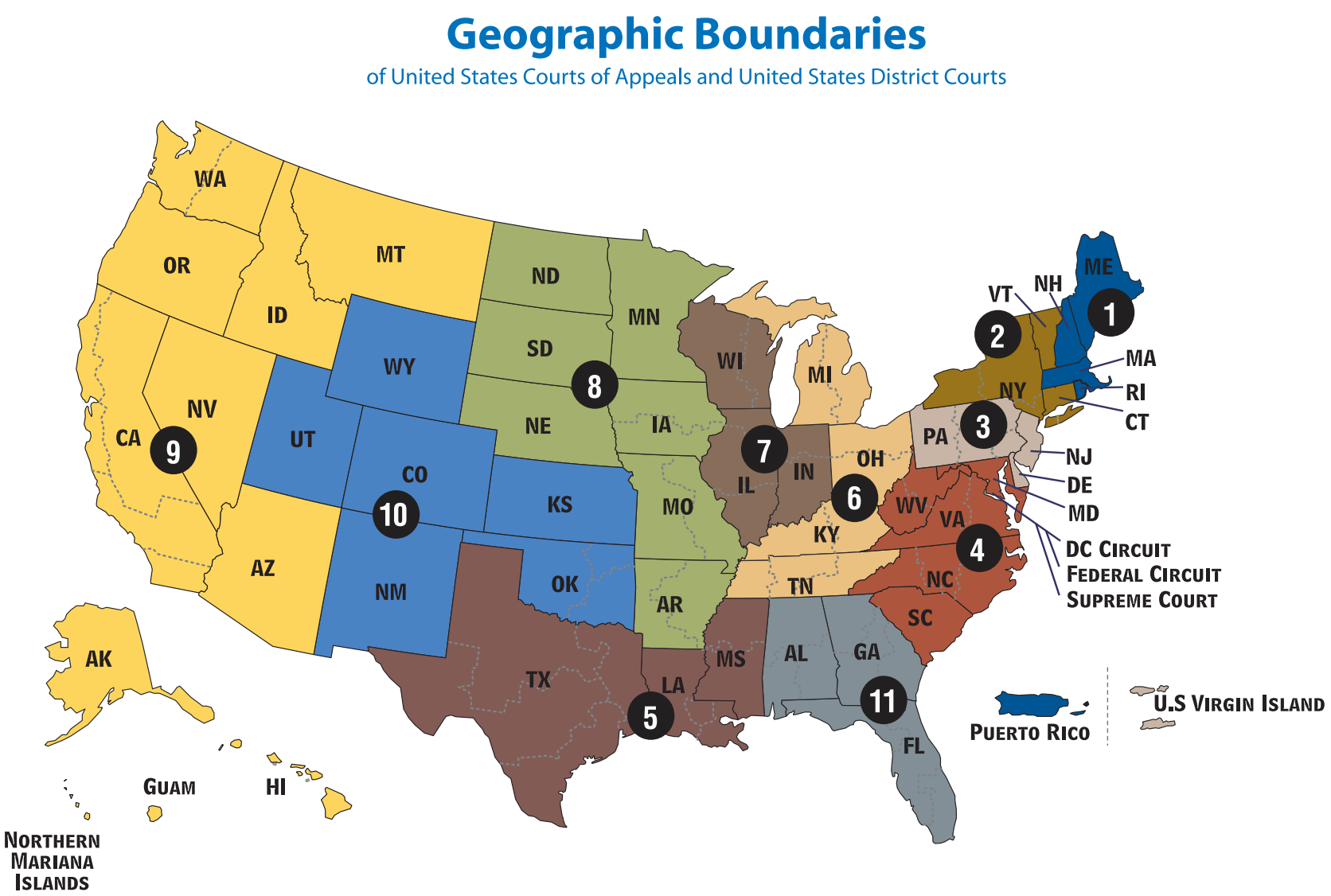If someone steals your photo or video, do you have to register your work with the United States Copyright Office before filing a lawsuit in Federal Court? The answer is yes. (Really. it’s yes. People still seem to be surprised about this. Register your works people.)
But anyone that’s been through the registration process knows it can take weeks, if not months between the time you submit your registration application, to the time someone actually gets around to processing it. So, can you still sue someone for copyright infringement if you just filed your registration, but you’re still waiting for your application to be processed? Or do you absolutely need your registration application to be processed before you can file a lawsuit for copyright infringement?
The answer is every lawyer’s favorite answer to everything: it depends.
It depends on what Federal Court you plan on filing your lawsuit in. Different Circuits treat this particular issue of law differently. Here’s a quick “Explain Like I’m 5” primer on Social Studies, which you can skip if you just want to get to the good part.
ELI5 Federal Court Primer
As a quick ELI5 primer, the United States consists of three levels of Federal Courts, which handles issues of federal law. Issues of “stolen photos or videos”, or misappropriation of others’ intellectual property generally falls under federal jurisdiction. So if you want to sue someone for stealing your photo, your lawsuit would be filed in Federal Court, specifically a District Court.
Every state has at least one District Court, which is the entry-level federal court. If you lose your case at the U.S. District Court level, you can appeal to your circuit’s Court of Appeals.

Your “circuit” depends on the state where your original case was filed. The United States is broken into 11 circuits, and each circuit can hold opinions of law that differ from a neighboring circuit. If you lost your case in the Court of Appeals and feel there was an error, you can try one last time for review, by petitioning the Supreme Court of the United States to hear your case (ask it to grant a writ of certiorari). But they usually say no (you are not entitled to an automatic review by the Supreme Court, and most petitions are denied). But on occasion, the U.S. Supreme Court decides that the issue of law that arose in your case is worthy of review and written analysis.
Hey, fun lawyer fact! Did you know that not just any lawyer can file a lawsuit in Federal Court?There’s a separate admissions process for Federal District Courts, then ANOTHER admissions process to practice in the Court of Appeals, and yet ANOTHER admissions process to practice before the Supreme Court of the United States. ….that’s as fun as lawyer facts get.

Map showing the Federal Courts of Appeals and boundaries. If your case was filed in New York at the District Court level, you would file an appeal to the 2nd Circuit Court of Appeals. If you filed in California at the District Court level, you would appeal to the 9th Circuit Court of Appeals.
On occasion, different circuits hold slightly different interpretations of federal law, such as the case we’ll be discussing here, involving copyright registration. Lawyers must be well-versed on the subtle (and sometimes not-so-subtle) differences, and it often leads to forum shopping as part of the litigation strategy.
Registering Your Work Before Filing a Lawsuit
The Eleventh Circuit has joined the Tenth Circuit this month in holding that a copyright owner must plead that the Register of Copyrights has acted on its application as a prerequisite to filing a copyright infringement action. This means that if you’re planning on filing a lawsuit in the 11th circuit (AL, GA and FL), simply filing your copyright registration application is no longer sufficient. You must wait the several week to several moth period that it takes the registrar to get to your application before filing a lawsuit. You can read all about the 11th Circuit’s decision here.
The Ninth (AK, AZ, CA, HI, NV, OR, ID, MT, WA) and Fifth (TX, LA, MS) Circuits follow the “application” approach, which requires only that the owner allege that it has properly submitted the application.
The Eighth (ND, SD, NE, MN, IA, MO, AR) Circuit also has endorsed the “application” approach, albeit in dicta.
The Seventh (WI, IL, IN) Circuit is split, and the First (ME, NH, MA, RI) and Second (NY, VT, CT) Circuits are ambivalent as to whether an application or registration is sufficient.







